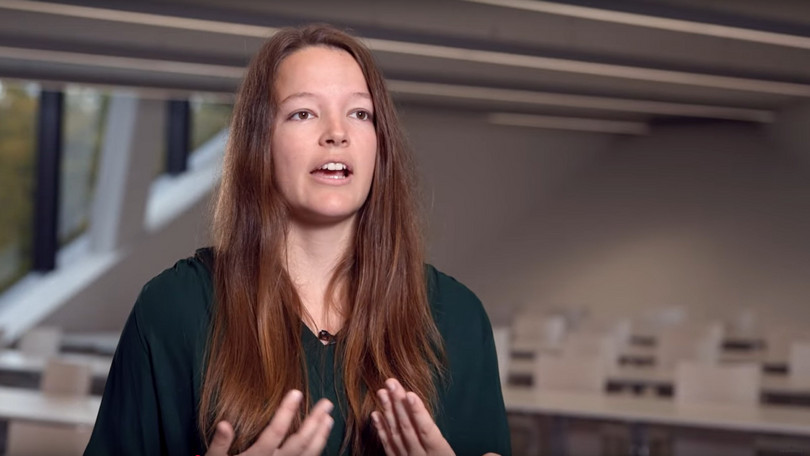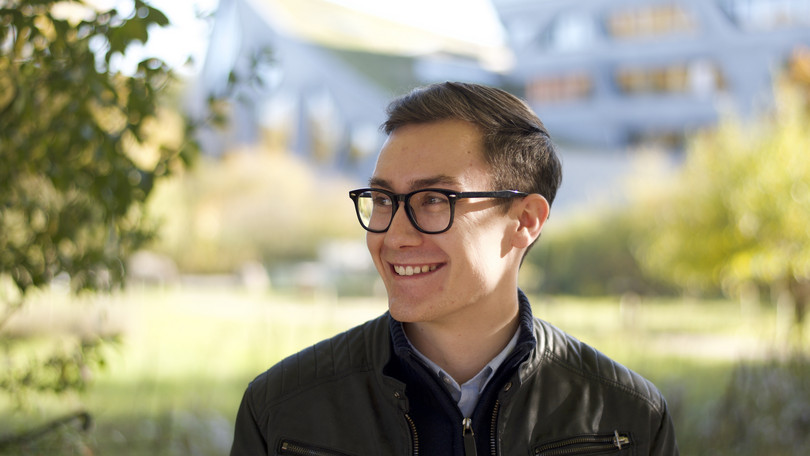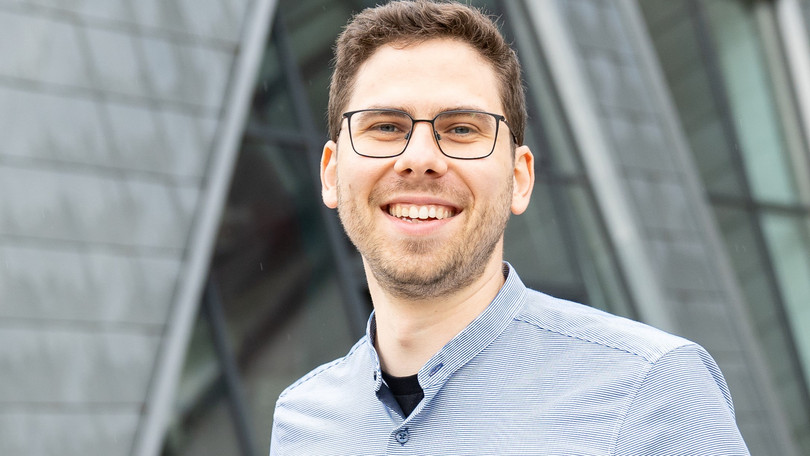Testimonials
Leuphana Graduate School empowers its doctoral researchers to seek answers to life’s most challenging questions. We carry out this mission by creating spaces for interdisciplinary interaction. Read and hear their stories and become part of the Doctoral Research Group Management, Accounting & Finance!
Jennifer Zeppenfeld
Niklas Werthschulte
2024-08-19 The 25-year-old consultant studied Business Administration at Leuphana College, completed the ‘Management & Sustainable Accounting and Finance’ Master's programme at the Graduate School and is now doing his doctorate there while working. For the Stralsund native, commuting between academia and practice is a stroke of luck: ‘My employer RSM Ebner Stolz, Leuphana and I all benefit from this interlinking.
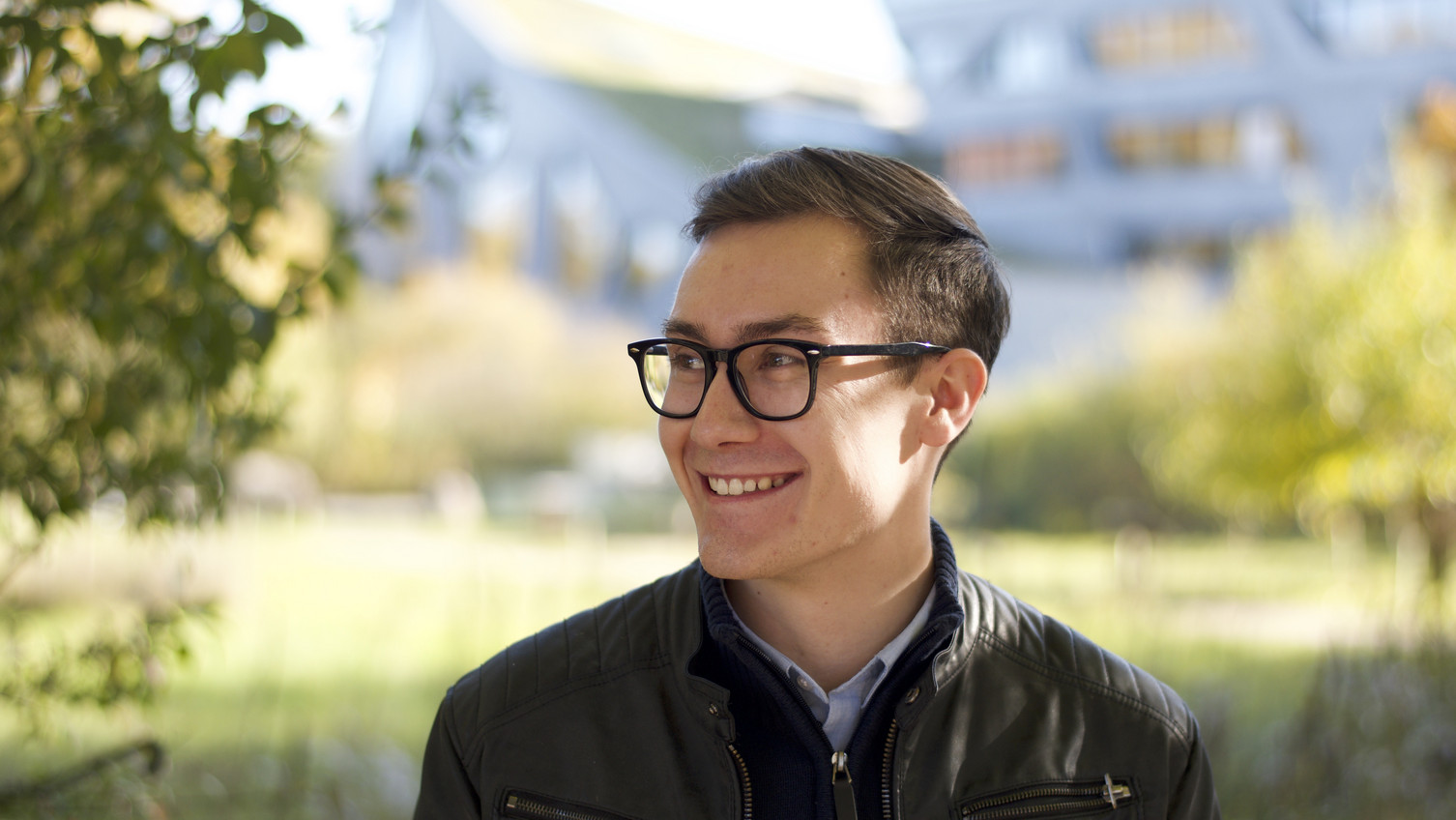 ©Leuphana/Marvin Sokolis
©Leuphana/Marvin Sokolis
The topic of ‘sustainability reporting’ runs like a common thread through Niklas Werthschulte's studies and doctorate. In his bachelor's thesis, he already focussed on the effects of companies' CO2 performance on their financial performance. In his empirical work, he found: ‘The capital market penalises companies that do not act sustainably. Investors see more risks there.’ Niklas Werthschulte was honoured by the Leuphana Chair of Accounting, Auditing & Corporate Governance for his achievement in his final thesis.
This was a great motivation for the then recent Bachelor's graduate: ‘I realised that statistical work and academic writing suited me. That's why I decided early on to pursue a doctorate,’ reports Niklas Werthschulte. He stayed on course and completed the Master's programme in Management & Sustainable Accounting and Finance at the Graduate School: ‘I focussed my seminars, assignments and Master's thesis thematically on sustainability reporting,’ reports the doctoral student. He has remained loyal to his supervisor from his Bachelor's and Master's theses: Niklas Werthschulte is now also doing his doctorate under Prof Dr Patrick Velte, Professor of Business Administration, in particular Accounting, Auditing & Corporate Governance.
The doctoral student sees continuity as a major advantage: ‘I know the literature and have already applied many of the quantitative methods I am now using during my studies.’ A great help for the tightly scheduled doctoral programme: Niklas Werthschulte is doing his doctorate while working. He spends half a year at university and half a year at the auditing firm RSM Ebner Stolz. As a consultant in a young team, he supports companies in the preparation of sustainability reports and the expansion of the department for sustainability reporting and the auditing of sustainability reports. ‘A new EU directive now also requires certain large SMEs that are not capital market-orientated to report. The topic is becoming increasingly relevant and is politically explosive because more than 15,000 companies in Germany are subject to reporting and auditing requirements and the legislation is being drawn up with a significant delay. There have been many changes in the regulatory process,’ explains Niklas Werthschulte. The doctoral student is writing his doctoral thesis on the effects of the new requirement. He is analysing sustainability reports from stock 600 companies such as Volkswagen and Linde. Niklas Werthschulte wants to find out how much influence stakeholders have on companies' sustainability reporting.
The doctorate is scheduled to last four years: ‘For me, the interlinking of science and professional practice is a huge advantage, as I deal with sustainability reporting both scientifically and practically. I'm not only familiar with the theoretical level, but also know about the practical problems our clients face.’ Niklas Werthschulte's employer also benefits from the Consultant's doctorate: ‘I bring my expert knowledge from research into the auditing company,’ explains Niklas Werthschulte. Conversely, his employer gives him space for his academic work: ‘The workload is tailored to me.’
The doctoral student is currently working on his first two publications. However, Niklas Werthschulte sees his doctoral thesis not only as an academic challenge, but also as a personal added value: ‘A doctorate promotes perseverance, willingness to work and analytical skills.’
Maximilian Wagenknecht
Maximilian Wagenknecht is doing his doctorate at the School of Management and Technology on the topic of "Lean Startup Risk Management". Read his report on his experiences at Leuphana.
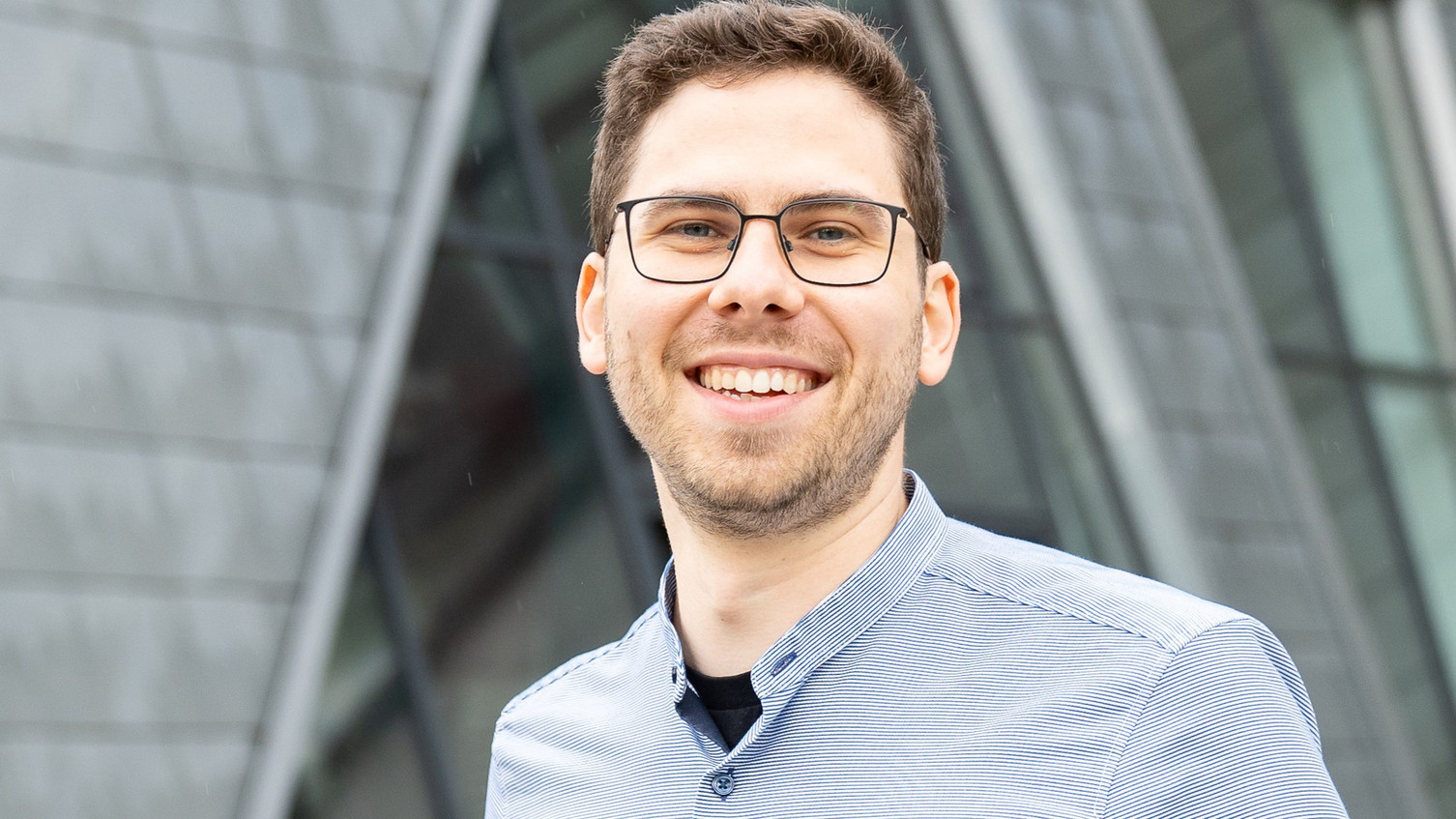 ©Leuphana/Teresa Halbreiter
©Leuphana/Teresa Halbreiter
What is your research about?
With my research, I want to gain a deeper understanding of how start-ups deal with opportunities and risks in different contexts. To this end, I look at both the internal perspective of startups and the external perspective, such as communication with investors or customers.
Due to the cumulative structure of my doctorate, I use various research methods and have just conducted qualitative interviews with founders. With this content, I am investigating, among other things, whether and how the topic of risk management is taken into account by start-ups. The question of the applicability of established risk management processes to startups and the resulting follow-up question of whether these processes need to be adapted for startups is particularly exciting.
Why did you decide to do a doctorate at Leuphana?
I already knew Leuphana from my Bachelor's degree. After completing my Master's degree in Bremen, Leuphana was on the shortlist for my doctorate right from the start. Fittingly, a position as a research assistant was advertised at the time. I am very happy about this opportunity because I can also gain teaching experience in this position.
I also perceive Leuphana as a start-up-orientated university that addresses the topic of business start-ups on an interdisciplinary level. This offers the opportunity for interdisciplinary dialogue and direct discussions with founders, which is of great value for my research.
The doctoral programme is a special offer at Leuphana - what are your experiences with it?
The disciplinary education in the respective faculties and the exchange in the doctoral programme provide a valuable basis for academic development. At the same time, the interdisciplinary content of the doctoral programme offers a wide range of perspectives on your own research topic.
From the cross-faculty contacts of the doctoral programme, I have also established a regular Zoom meeting together with other doctoral students. Especially if you are not working at the university at the same time, such an exchange offers a good opportunity to network.
You are the spokesperson for the doctoral student representatives. What tasks are associated with this elective office?
The doctoral student representatives consist of one doctoral student from each faculty. In this role, you have a say in the Faculty Council and a sympathetic ear for the concerns of doctoral students. In addition, the spokesperson for the doctoral representatives is a member of the university senate. This means that the concerns of doctoral candidates can also be raised in Leuphana's highest body.
There is also close cooperation with the doctoral student representative group, which also enriches the social aspects and life on campus. Through the diverse tasks in the doctoral student representation, you also get to know people throughout the university, such as professors and staff at the Graduate School. Such contacts are very valuable for personal and academic development.

